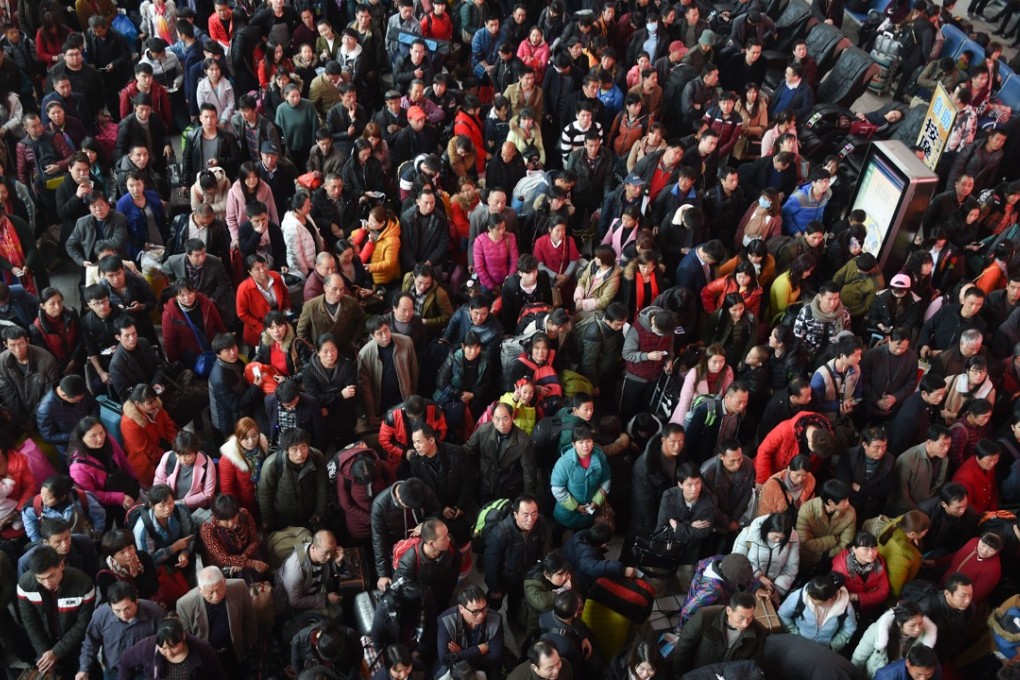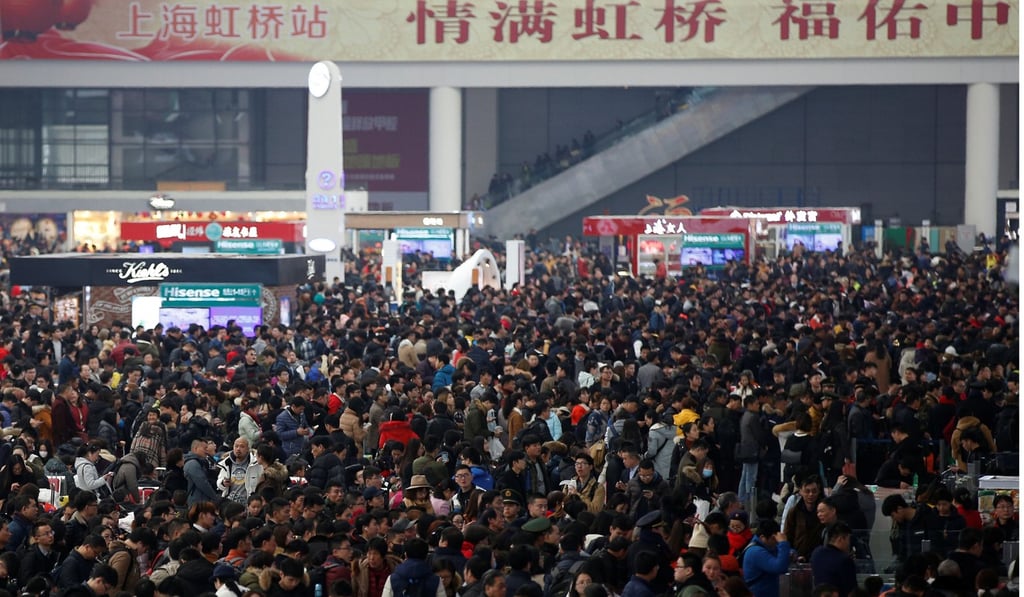Facial recognition to ticketing apps: how tech is helping ease the Lunar New Year travel crush
Technology is playing a part to ease the travel crush during Lunar New Year. An estimated 3 billion trips will be made in a six-week period starting next week as hundreds of millions of Chinese make their way back to their hometowns.

China’s Lunar New Year travel season will begin to ramp up from next week as hundreds of millions of Chinese travel billions of miles back to their hometowns to reunite with family and usher in the Year of the Dog.
An estimated 3 billion trips in total, by all modes of transport imaginable, would be undertaken within a six-week period through mid-March, making it the biggest annual human migration event. In past years, snowstorms have closed down airports, trapped thousands in near-stampede conditions at train stations that make mosh pits feel spacious, while scalpers fleeced weary overladen migrant workers who had little choice but to accept exorbitant ticket prices to get home.
To ease the burden on the national transport network and ensure the security and safety of travellers, a host of hi-tech tools like facial recognition will be deployed at key nodes to manage the flow. At the front end, mobile payments and web-based ticketing apps are being used to reduce the hours-long queues for tickets at railway stations. Ride-hailing apps use location positioning to pool travellers going the same way.

Every year, China’s railways bear the brunt of “chunyun”, which translates to “spring transport”, as the holiday travel period is known.